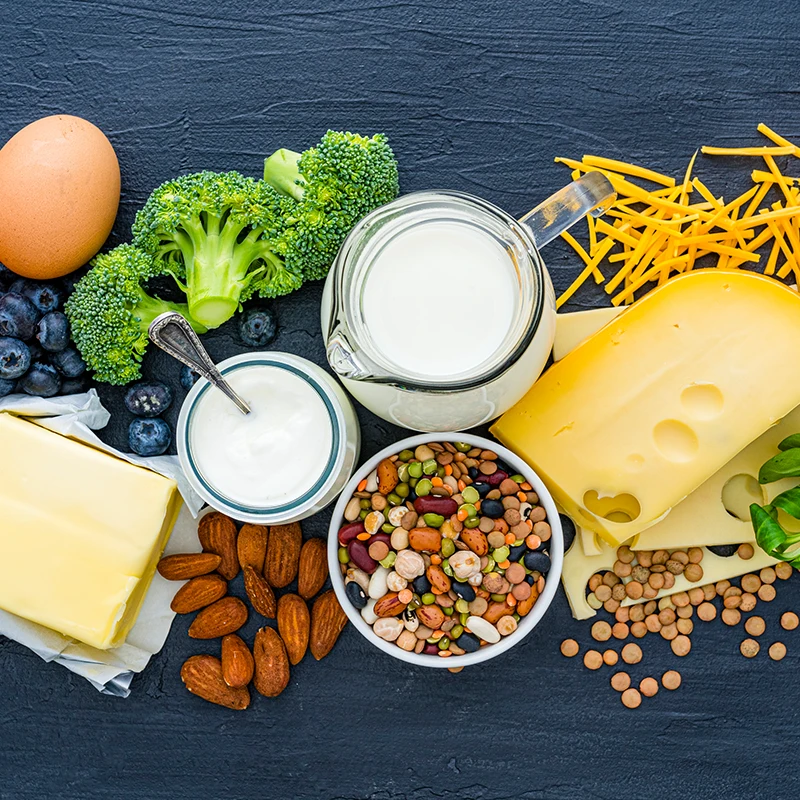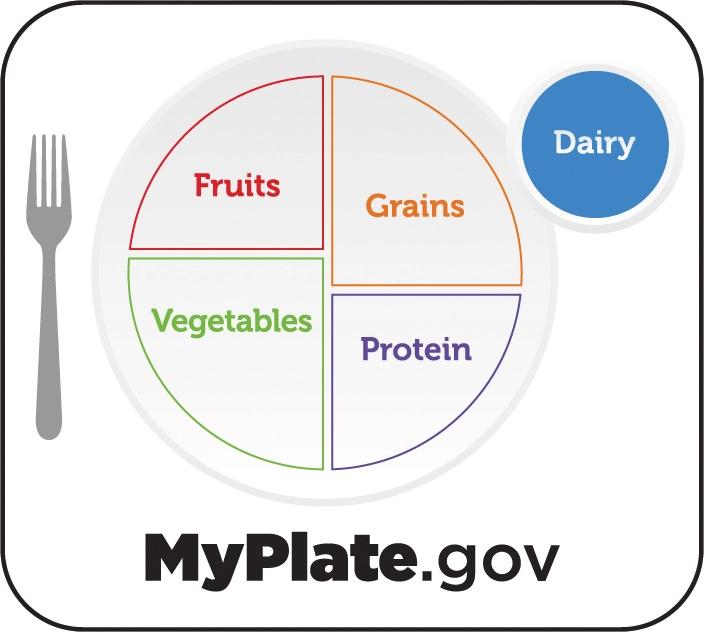Good taste and good for you, the Oregon Dairy Council programs help Oregonians enjoy tasty food and choose foods that will enhance their health. Milk, cheese and yogurt provide a powerhouse of protein and essential nutrients and are a key component of a healthy diet. Dairy foods such as milk, cheese and yogurt can be a core part of nutritious, sustainable healthy eating patterns because they deliver a unique combination of essential nutrients in an appealing, affordable and readily available way. The health benefits from drinking milk and eating cheese and yogurt have been well documented by decades of nutrition research and that’s why the Dietary Guidelines for Americans recommend dairy every day.


MyPlate is a nutritional guide developed by the USDA to promote healthy eating habits. It divides a typical meal plate into four sections: fruits, vegetables, grains, and protein, with a side of dairy. MyPlate now offers personalized recommendations based on individual factors like age, gender, and dietary goals. MyPlate provides specific nutrition guidance for all stages of life, nutrient intake assessments, and resources for healthy eating, including recipes and budget-friendly tips.
During pregnancy, including dairy in the diet can provide essential nutrients crucial for the health and development of both the mother and the baby. Dairy products are rich in calcium, which is vital for the development of the baby’s bones, teeth, muscles, and nerves. Adequate calcium intake also helps prevent the mother from losing her own bone density. Additionally, dairy products are a good source of protein, which is necessary for the growth and the repair of tissues. Protein is also important for the production of enzymes and hormones that regulate various bodily functions.
Prenatal nutrition plays a crucial role in ensuring the health and well-being of both the mother and the baby. In addition to calcium and protein, dairy products provide other important nutrients such as vitamin D, which helps the body absorb calcium and supports the development of the baby’s bones and teeth. Dairy products also contain B vitamins, including B12, which is important for the development of the baby’s nervous system. By including dairy in their diet, pregnant women can help ensure that they are getting the nutrients they need to support a healthy pregnancy and a healthy baby.

During the first 1,000 days of a child’s life, which includes pregnancy and the first two years after birth, nutrition plays a critical role in supporting healthy growth and development. Dairy products are rich in essential nutrients such as calcium, protein, vitamin D, and potassium, which are vital for building strong bones and teeth, supporting muscle growth, brain development and cognition, and maintaining overall health. Including dairy products in the diet during this period can help ensure that children receive these essential nutrients, laying a strong foundation for their future health and well-being.


Dairy benefits bone health across the lifespan primarily due to its rich calcium content, essential for maintaining bone strength and development, along with other nutrients such as vitamin D, phosphorus, and protein. Together, these nutrients make dairy a valuable component of a balanced diet for maintaining healthy bones throughout life.

Protein is an essential nutrient your body needs to re-build, maintain and repair body tissues, such as muscle and nervous tissue. Choosing high-quality protein that contains all nine essential amino acids that your body cannot make on its own is crucial. The high-quality protein found in milk, cheese, yogurt and whey protein powder is important in your diet, no matter your age, and will help to build and maintain strong muscles.

Evidence suggests that consuming dairy, like milk, cheese, and yogurt, as part of a balanced diet, can be beneficial and may help lower the risk of heart disease, stroke, and high blood pressure. Dairy products are rich in nutrients like calcium, potassium, and protein, which are important for heart health.